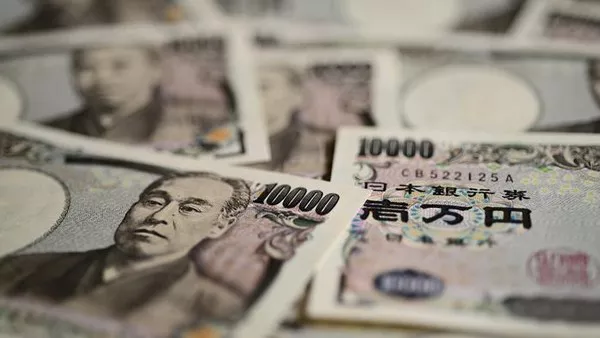USD/JPY was trading close to 11-month highs around 148.90 during the Asian session on Tuesday. The U.S. dollar (USD) continues to strengthen, in part due to cautious market sentiment and rising U.S. Treasury yields.
The U.S. dollar index rose above 106.00, hitting its highest level since November. Rising U.S. Treasury yields provided support for a stronger dollar. As of press time, the 10-year U.S. Treasury yield has risen to 4.56%, a new high since October 2007.
The strength of the U.S. economy has fueled expectations that interest rates will remain high for an extended period. Additionally, the U.S. Federal Reserve said it would raise interest rates further if necessary, thus consolidating the dollar’s strength.
Separately, concerns over the potential consequences of a federal shutdown come as President Joe Biden and a top adviser both warned it could cause widespread hardship, including nearly 7 million low-income women and children losing food benefits. Worry.
While President Biden and House Speaker Kevin McCarthy have reached an agreement in advance on government spending levels, the Republican-controlled House of Representatives may seek to pass deep budget cuts that would require approval by the Democratic-controlled Senate.
The proposed cuts require approval by the Democratic-controlled Senate, which is expected to reject them. If the House and Senate cannot reach an agreement on government spending, it could lead to a partial government shutdown next Sunday.
Investors are likely to focus on key data due later this week, including U.S. consumer confidence, durable goods orders, jobless claims and the core personal consumption expenditures (PCE) price index, the Fed’s preferred measure of inflation. standard.
These data sets will provide important information about inflationary pressures in the U.S. economy and may influence trading decisions involving the U.S. dollar.
On the other hand, the Japanese yen is under downward pressure as the Bank of Japan (BoJ) did not adjust its ultra-low monetary policy on Friday. The Bank of Japan has chosen to continue supporting the economy until inflation reaches its 2% target on a sustained basis. The decision suggests the Bank of Japan is in no rush to phase out its massive stimulus program.
On Tuesday, Japanese Finance Minister Shunichi Suzuki commented on Japan’s economic situation, emphasizing that Japan is at a critical moment and needs to decide between stimulating consumption or promoting wage growth. Suzuki also noted that predicting whether fiscal spending alone will lead to higher prices is a challenge.
In addition, Japan’s newly appointed Economic Minister Yoshitaka Shindo said that the currency must show stable trends to reflect economic fundamentals.
On Monday, Bank of Japan Governor Kazuo Ueda stressed the importance of spending more time assessing data before considering raising interest rates. In addition, Deputy Governor Uchida Shinichi also emphasized that the central bank needs to patiently continue to implement loose monetary policies and pay close attention to currency market trends.
These dovish comments are likely to weigh on the Japanese yen and could provide support for the USD/JPY pair.


